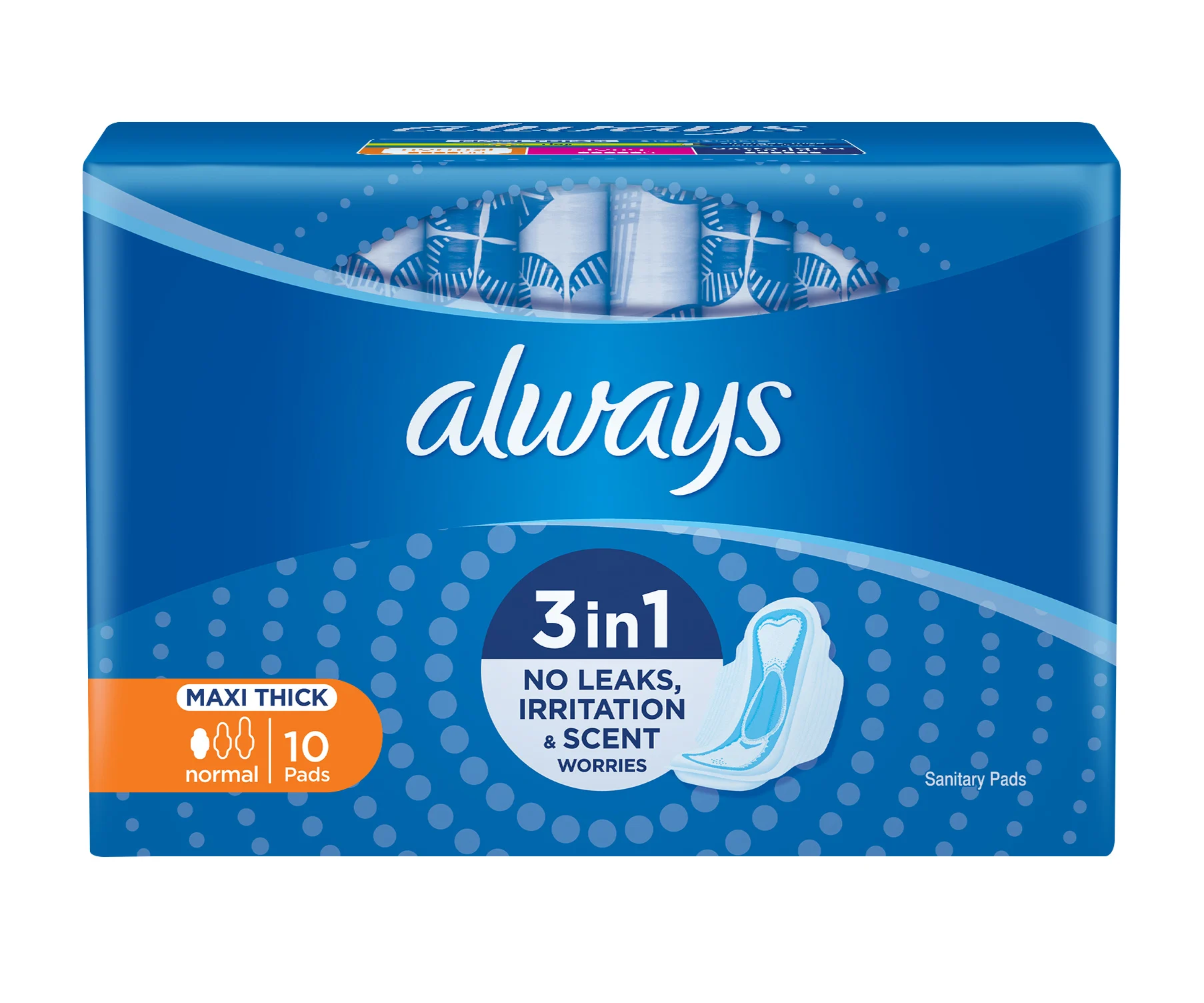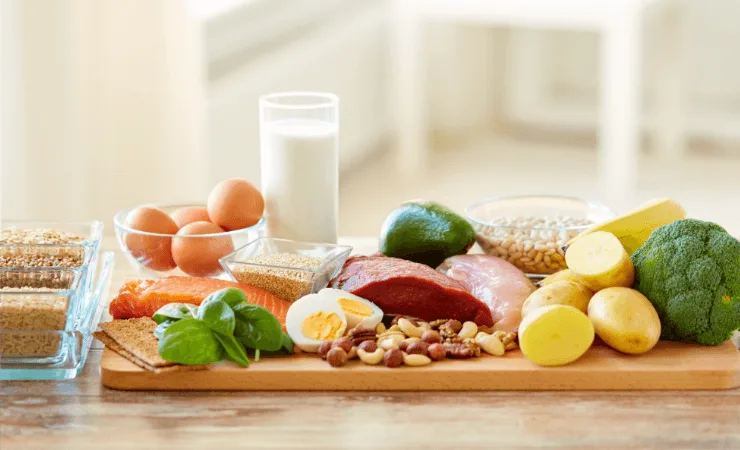Endometriosis diet: Your food guide to combat the condition

Heavy periods, pain, nausea – those who have endometriosis know exactly how distressing these symptoms can be and how they interfere with your daily activities.
One of the best ways to combat this condition is by having a structured endometriosis diet. What you eat plays a huge role in managing the symptoms. Knowing which foods to avoid with endometriosis will help you as well.
What is endometriosis?
Before we discuss the diet, let’s understand what endometriosis is really. It is a condition wherein cells that are similar to your endometrium (lining of your uterus) cells grow in other parts of your body. This growth can occur in your bladder, fallopian tubes or other organs. Then, when you get your period, these cells try to shed but have nowhere to go.
This trapped blood from the misplaced cells causes inflammation of nearby organs and tissues. The symptoms that you experience - pain, fatigue and digestive problems, as well as, in some cases, infertility are the result of this inflammation.

Some of the common symptoms of endometriosis include painful periods, chronic pelvic pain, painful bowel movements and urination, and depression or anxiety among others. Painful periods may also be accompanied by heavy periods or bleeding between periods. The solution here is an endometriosis diet which could benefit you a great deal. Let us look at the foods which may help alleviate endometriosis symptoms and foods to avoid with endometriosis.
To combat heavy bleeding, it’s only wise that you stay prepared at all times by using superior quality period products like Always pads. Try the Always Maxi Thick pads to manage heavy periods as these are designed with unique anti-leakage barriers in the front, centre, and back for maximum coverage. Its extra absorbent core is designed to absorb liquid, so you don't feel a thing.
Those who prefer using tampons can explore the range of Always tampons. The Tampax Compak is a great fit. It comes with a smooth, compact applicator for discretion, and a built-in protective skirt to help prevent leakage for up to 8 hours. Additionally, they are available in various absorbency variants to best suit your flow during your period.
How your diet can help manage endometriosis
The two factors that worsen the symptoms of endometriosis are inflammation and high oestrogen levels. And what you eat can greatly influence both the factors. Hence, a proper endometriosis diet can play a huge role in helping your body fight inflammation and balance oestrogen. Many people have found that the right endometriosis diet plan has significantly helped them reduce endometriosis symptoms.
Two studies conducted suggested that eating a diet consisting of fruits, vegetables, whole grains and omega-3 fatty acids could prevent endometriosis from developing further or worsening. This shows that by adopting a healthy endometriosis diet you can reduce the risk of developing it and limit the symptoms too.
However, it is important to note, that dietary and lifestyle changes will not cure endometriosis but may help to improve its symptoms. Maintaining a food journal for some time may help you identify the foods that help.
Foods to include in endometriosis diet
A diet packed with nutrients, vitamins and minerals will help fight inflammation and pain associated with endometriosis. Below are some foods you can include in your endometriosis diet:
- Fibre-rich foods such as fruits, vegetables, legumes, and whole grains
- Foods that are rich in iron such as dark leafy greens, broccoli, beans, fortified grains, nuts, and seeds
- Include omega-3 fatty acids in your diet. These are anti-inflammatory fats found in fatty fish and other animal and plant sources such as such as salmon, sardines, herring, trout, walnuts, chia, and flax seeds. Unlike plant oils which may promote pain and inflammation, omega-3 fats are believed to have the opposite effect. They help build your body’s inflammation and pain-relieving molecules.
- Foods that are high in antioxidants, found primarily in colourful fruits and vegetables, such as oranges, berries, dark chocolate, spinach, and beets.
- Eggs are an excellent source of protein and are especially beneficial for women who are on an endometriosis diet. That’s because they are rich in omega-3 fatty acids, which helps decrease cramping caused by endometriosis.

It is important to consult your doctor or a dietician before you make any changes to your diet. Maybe try incorporating one kind of food at a time instead of everything at once. This will give you a clear indication of how your body reacts to certain foods.
Foods to avoid with endometriosis
Just as certain food help manage the symptoms, certain foods and lifestyle choices can worsen your endometriosis symptoms or increase your risk of developing it. The below foods are known to adversely affect endometriosis and hence should be avoided:
- Foods that are high in trans fat. Research suggests that women who consume more trans fat have higher rates of endometriosis diagnosis. Fried, processed, and fast foods- are where trans fat is mostly found.
- Avoid excessive red meat consumption. Research suggest that a high intake of red meat is associated with an increased risk of endometriosis development.
- Avoid gluten. A study shows that removing foods with gluten helped decrease pain.
- Certain foods influence hormone regulation, particularly oestrogen. This can negatively affect those who have endometriosis and must be avoided. These foods include:
- alcohol
- caffeine
- saturated and trans fat.
Knowing what foods benefit and what don’t will help you customise the best diet for endometriosis. Talk to your dietician to structure a plan that works for you.
There are also some special endometriosis diets that may help you. They are:
1. Gluten-free diet
Abstaining from gluten has become more of a fad in recent years. However, there is a study where 75 percent of the 156 women who took part in the study reported a decrease in painful symptoms after following a gluten-free diet for 12 months.
2. FODMAP diet
Technically, FODMAP stands for fermentable oligosaccharides, disaccharides, monosaccharides and polyols, which are short-chain carbohydrates (sugars) that the small intestine absorbs poorly. In the FODMAP diet, a person abstains from certain carbohydrates from their diet to minimise the chances of consuming any potentially irritating foods.
The aim is to allow the gastrointestinal system to heal. Once all the said foods are eliminated, certain foods are gradually re-introduced. This way, you can understand how the body tolerates them.
Endometriosis diet and fertility
If you want to get pregnant and are looking for an endometriosis diet to help with fertility, then sadly, there is little research directly that shows any link between diet and fertility for women with endometriosis. It is not scientifically proven that certain food will help you get pregnant.
However, as stated above, there is research that shows that a curated endometriosis diet can help with its symptoms such as pelvic pain and inflammation. This may increase your odds of getting pregnant. In any case, all the above food recommendations will benefit your health in general and improve your well-being. However, it’s essential that you consult with your doctor before making any changes to your diet.

Other ways to manage endometriosis symptoms
In addition to your diet and medical treatments, there are some alternative methods and home remedies to help manage the symptoms. These include:
Regular exercise
Acupuncture
Including vitamin B1 in your diet
Including magnesium supplements in your diet
Yoga
Even with the above methods, always consult with your doctor before you start.
Takeaway
Endometriosis can be challenging, but you have another option that will help manage the symptoms. A planned endometriosis diet will help you manage the symptoms. So, if you are dealing with acute endometriosis symptoms, visit a doctor and discuss if these dietary changes can help you out.
Stay well prepared for your next period by tracking it on Always Period Calculator
Disclaimer:
Please note the date of last review or update on all articles. No content on this site, regardless of date, should ever be used as a substitute for direct medical advice, diagnosis or treatment from your doctor or other qualified clinician. Always is committed to ensuring that all of our products meet rigorous safety standards; Always pads prioritize safety, protection and comfort of its consumers.




